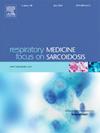分泌管理装置减少神经功能障碍儿童呼吸恶化的住院率。
IF 3.5
3区 医学
Q2 CARDIAC & CARDIOVASCULAR SYSTEMS
引用次数: 0
摘要
背景:呼吸系统并发症是神经功能障碍儿童发病和死亡的主要原因。反复肺部感染导致多次住院。有效的分泌物管理对这一人群至关重要,但对其影响的研究有限。本研究评估分泌管理对神经功能障碍患儿呼吸恶化住院时间的影响。方法:这项回顾性观察性多中心研究纳入了来自四个法国参考中心的儿童,时间为2024年2月至5月,开始使用分泌物管理装置一年后。结果:纳入23例患者(9例女孩),中位年龄为10.7[8.7;15.3]岁。在开始分泌物管理技术之前,有16名儿童反复发生胸部感染。肺内冲击通气(IPV)、间歇正压呼吸(IPPB)和机械充气-呼气(MI-E)装置分别适用于12例、7例和5例患儿。11例患儿的主要适应证是反复呼吸道感染,8例患儿的胸部活动。器械启动一年后,肺恶化住院天数从中位数(范围)12(0-88)天显著减少到0(0-34)天(p=0.018)。结论:这项多中心研究表明,分泌物管理可显著减少神经功能障碍儿童呼吸恶化的住院时间。本文章由计算机程序翻译,如有差异,请以英文原文为准。
Secretion management devices reduce hospitalizations for respiratory exacerbations in children with neurodisability
Background
Respiratory complications are the leading cause of morbidity and mortality in children with neurodisability. Repeated pulmonary infections lead to multiple hospitalizations. Effective secretion management is crucial in this population, but studies on their impact are limited. This study evaluates the effect of secretion management on the duration of hospitalizations for respiratory exacerbations in children with neurodisability.
Methods
This retrospective observational multicenter study included children from four French reference centers, between February and May 2024, one year after initiating a secretion management device.
Results
Twenty-three patients (9 girls) with a median age of 10.7 [8.7; 15.3] years were included. Sixteen children had recurrent chest infections before initiating a secretion management device. Intrapulmonary percussive ventilation (IPV), intermittent positive pressure breathing (IPPB), and mechanical insufflation-exsufflation (MI-E) devices were prescribed to 12, 7, and 5 children, respectively. The primary indication was repeated respiratory infections in 11 children, and thoracic mobilization in 8 children. One year after device initiation, the number of days of hospitalization for pulmonary exacerbation significantly decreased from a median (range) of 12 (0–88) to 0 (0–34) days (p = 0.018).
Conclusion
This multicenter study demonstrates that secretion management significantly reduces the duration of hospitalizations for respiratory exacerbations in children with neurodisability.
求助全文
通过发布文献求助,成功后即可免费获取论文全文。
去求助
来源期刊

Respiratory medicine
医学-呼吸系统
CiteScore
7.50
自引率
0.00%
发文量
199
审稿时长
38 days
期刊介绍:
Respiratory Medicine is an internationally-renowned journal devoted to the rapid publication of clinically-relevant respiratory medicine research. It combines cutting-edge original research with state-of-the-art reviews dealing with all aspects of respiratory diseases and therapeutic interventions. Topics include adult and paediatric medicine, epidemiology, immunology and cell biology, physiology, occupational disorders, and the role of allergens and pollutants.
Respiratory Medicine is increasingly the journal of choice for publication of phased trial work, commenting on effectiveness, dosage and methods of action.
 求助内容:
求助内容: 应助结果提醒方式:
应助结果提醒方式:


